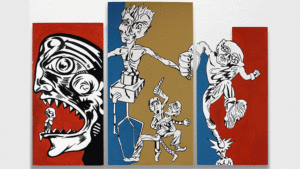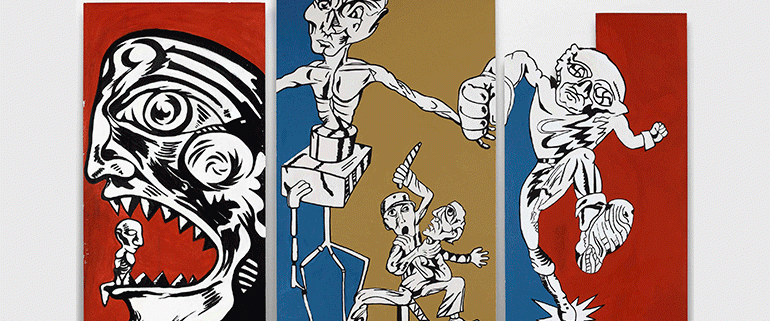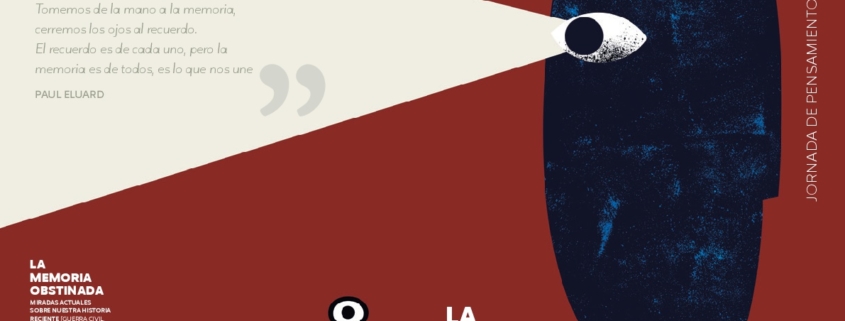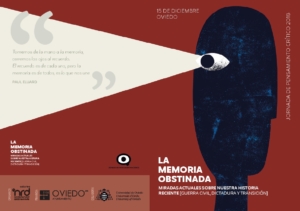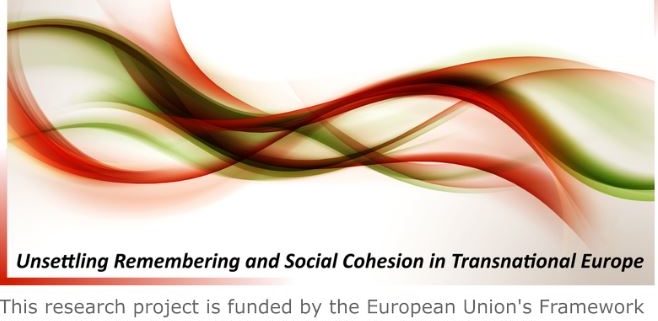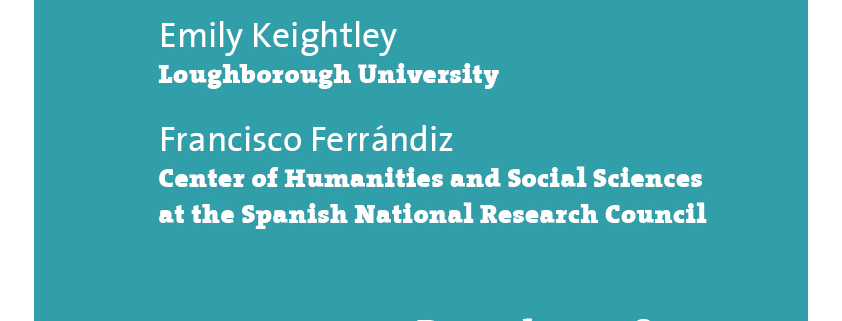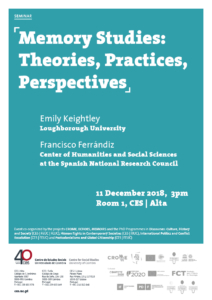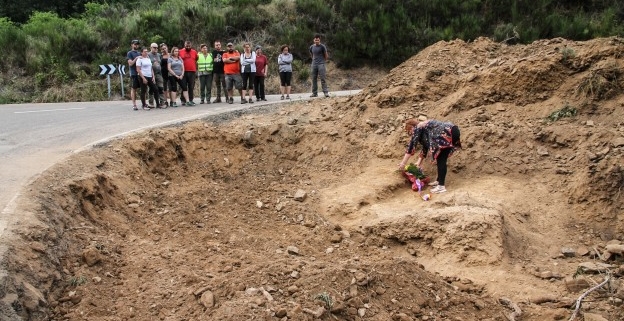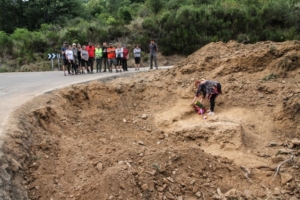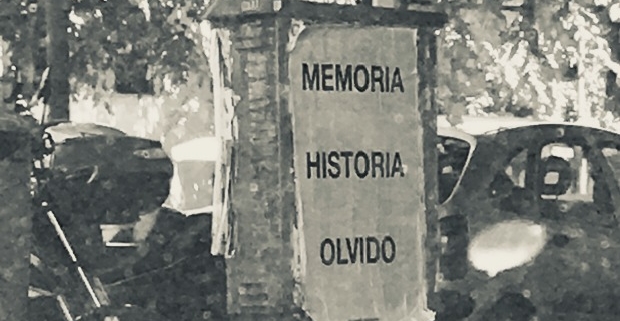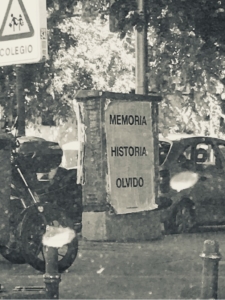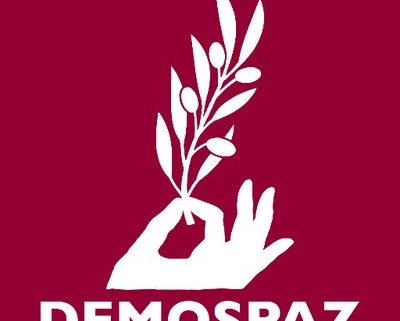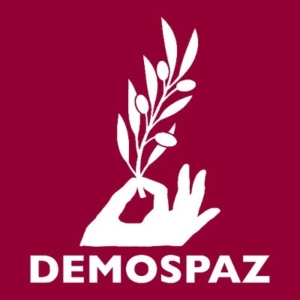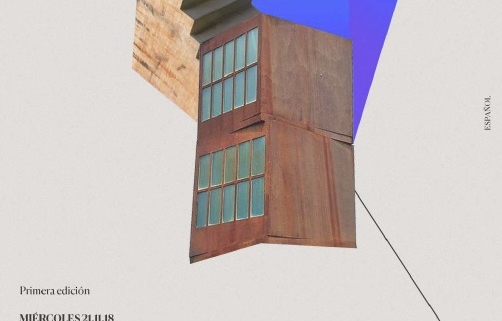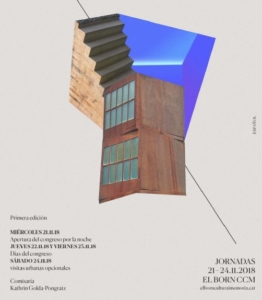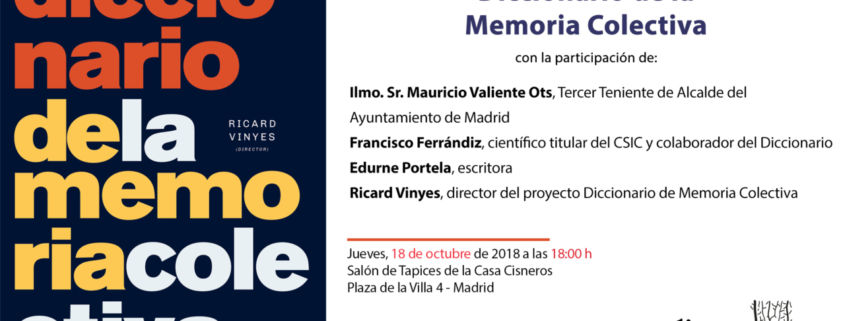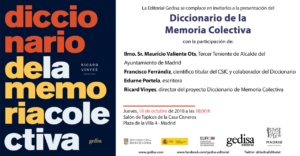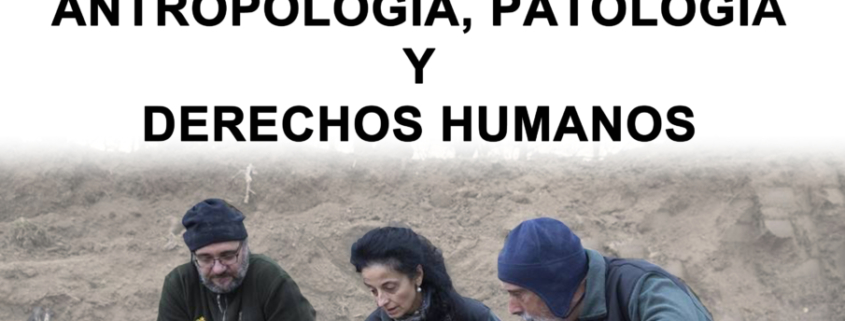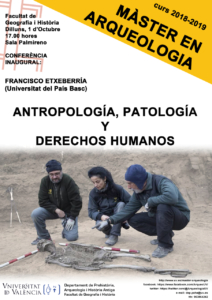UNREST Final conference en la British School at Rome del 6 al 8 de febrero de 2019
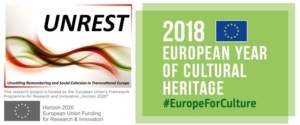
The Horizon 2020 project ‘Unsettling Remembering and Social Cohesion in Transnational Europe’ (UNREST) Final Conference was held at the British School at Rome on 6-8 February 2019.
This international conference invited some of the leading specialists in Memory Studies, History, Social Anthropology, Political Philosophy, Cultural Studies and Human-Computer Interaction, heritage professionals, cultural practitioners, and policymakers to discuss the work of the UNREST project over two days at the prestigious British School at Rome.
Francisco Ferrándiz and Marije Hristova participated in the journeys with the following conference: “Remembering at Sites of Mass Grave Exhumations”
Full program
UNREST project website
Workshop: Exhumations and Memory in contemporary Bosnia, Poland and Spain 23 March 2018
4 Debates within the debate workshop “Exhumations and Memory in contemporary Bosnia, Poland and Spain”, part of the UNREST and BELOW GROUND project by Francisco Ferrándiz (ILLA, CCHS-CSIC).
Date of celebration: 23 March, 2018 at the Center for Human and Social Sciences of the CSIC (Madrid, Spain).
Workshop: Exhumations and Memory of the Spanish Civil War in the XXI C.January 30 and 31, 2017
6 debates within the debate workshop “Exhumations and Memory of the Spanish Civil War in the XXI C” that is part of the project UNREST and BELOW GROUND, by Francisco Ferrándiz (ILLA, CCHS-CSIC) and Francisco Colom (IFS, CCHS-CSIC) .
Date of celebration: January 30 and 31, 2017 at the Center for Human and Social Sciences of the CSIC (Madrid, Spain).
UNREST Stakeholder Workshop. 19 October 2016
6 debates within the debate workshop “UNREST Stakeholder Workshop” which is part of the UNREST and SUBTIERRO project, by Francisco Ferrándiz (ILLA, CCHS-CSIC).
Date of celebration: 19 October 2016 in Brussels (Belgium)
MOOC course: How We Remember War and Violence: Theory and Practice
Consider how we recall war and violence and discover a different way to remember. Our memories of conflict are often used against us. Nationalist movements manipulate the story – offering confrontational, harmful perspectives. But there’s a different way. This course takes a new approach to remembering, ‘agonistic memory’. You’ll explore how it improves upon the other two models of memory – ‘cosmopolitan memory’ and ‘antagonistic memory’, going on to see how agonistic memory can be used in your own work to relate more accurately to the past. By the end of this course, you’ll understand how the various models are used today – and will have a new way to look at history.
Access to the course
Where the Forest Thickens – English subtitles
Within the framework of the European Project UNREST, work has been done on the creation of a play on the exhumations carried out in Poland, Bosnia Herzegovina and Spain.
In the following link you can consult the Technical Sheet of the play:
Technical Sheet
In the following link you can consult a pedagogical package of the play:
PEDAGOGICAL PACKAGE
Where the Forest Thickens
Trailer Where the Forest Thickens
Francisco Ferrandiz (ILLA-CCHS, CSIC) talks about the premiere of the play
War Exhibit at the Ruhr Museum in Essen
The exhibition “Krieg.Macht.Sinn” opened at the Ruhr Museum in Essen, Germany, on 12 November 2018 and runs until 10 June 2019.
The exhibition presents controversial agonistic encounters on the level of form and content. It presents diametrically opposed opinions about the same events and exposes history to a provocative media ‘cross-fire’ for instance by featuring in close proximity authentic battle gear, explicit casualties photos, and cutting-edge video game entertainment. Rather than arranging objects and interpretations of warfare from one consistent narrative vantage point, for instance the perspective of pacifism, it presents visitors a constellation of dialogical clusters without a priori privileging one perspective/interpretation over another. Moreover, rather than focusing on one conflict it covers different wars of the 20th Century. All the while, it maintains a clear focus on Ruhr Valley history to enhance the visitors’ affective ties to the material at hand.
360º access to the exhibition
UNREST Project Policy Synthesis
The UNREST policy synthesis presents the findings of the project, reporting on the research parameters and providing evidence and analysis from the theoretical work testing agonistic memory as well as the empirical work on exhumation of mass graves and war museums. It also discusses the online course and cultural products that have been created during the project and make a number of policy recommendations on how to deal with difficult history. This policy synthesis is available in English, French, German and Spanish.
Web: UNREST Project Policy Synthesis
Policy Synthesis in English
Publications
-
- Ferrándiz, F. 2019. “Unburials, Generals and Phantom Militarism: Engaging with the Spanish Civil War Legacy”. Current Anthropology 60 (S19): S62-S76.
- Jugo, Admir and Sarah Wagner. 2017. “Memory Politics and Forensic Practices”, in Zuzanna Dziuban (ed.), Mapping the ‘Forensic Turn’, pp. 195-213. Vienna: Wiener Wiesenthal Institut für Holocaust-Studien.
- Ferrándiz, F and M Hristova. In press, 2019. “Mass Grave Exhumations as Agonistic Fora: A Comparative Study of Spain, Poland and Bosnia”, in Johanna Vollmeyer and Marta Fernández Bueno, Repensar el pasado: La memoria (trans)cultural Europea. Madrid: Dykinson.
- Berger Stefan, Anna Cento Bull, Zofia Wóycicka, Cristian Cercel, Nina Parish, Małgorzata A. Quinkenstein, Eleanor Rowley, “War Museums and Agonistic Memory. A Report” Museum Worlds, Vol. 6, Issue 1 (July 2019).
- Parish Nina, Marianna Deganutti, Eleanor Rowley. “Representing Multilingual Difficult History: Voices of the First World War in the Kobarid Museum (Slovenia) and the Historial de la Grande Guerre (France)” JoSTrans: The Journal of Specialised Translation, issue 29, January 2018.
- Cento Bull Anna, David Clarke, Marianna Deganutti. “Soft Power and Dark Heritage: Multiple Potentialities” International Journal of Cultural Policy, vol. 23(6), 2017: 660-674.
- Cercel Cristian. “The Military History Museum in Dresden: Forum and Temple Alike?” History & Memory, vol. 30(1), March 2018: 3-39.
- Cercel Cristian, Nina Parish and Eleanor Rowley “War in the Museum: The Historial of the Great War in Péronne and the Military History Museum in Dresden” Journal of War and Culture Studies, March 2019.
- Cento Bull Anna, Hans Lauge Hansen, Wulf Kansteiner, Nina Parish. “War museums as agonistic spaces: possibilities, opportunities and constraints” International Journal of Heritage Studies, vol. 25, no. 6, 2018.
- Daniela De Angeli; Lee Scott; Eamonn O’Neill; Daniel J. Finnegan; Anna Bull: “Agonistic Games: Multiperspective and Unsettling Games for a Social Change”.
- Anna Cento Bull and Hans Lauge Hansen, “On agonistic memory”, Memory Studies 9:4 (2016).
- Cento Bull, A. & Clarke, D. 2018. “Administrations of Memory and Modes of Remembering: Some Comments on the Special Issue”, International Journal of Politics Culture and Society.
- Natan Sznaider, “Response to “Understanding Agonistic Memory”
- Anna Cento Bull and Hans Lauge Hansen, “A reply to Natan Sznaider”
Press releases on the project
